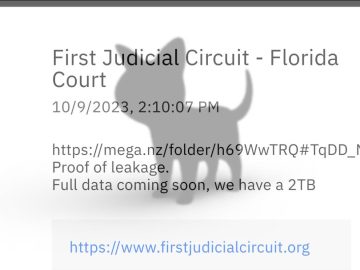Government officials and cybersecurity experts in the United States are claiming that the Chinese military is trying to breach vital infrastructure in the country, such as transportation networks and water and electricity utilities.
Based on a report initially disclosed by The Washington Post, relying on information from anonymous officials and security experts, it is alleged that hackers associated with China’s People’s Liberation Army successfully breached the computer networks of approximately twenty-two significant organizations over the past year.
The purpose of this infiltration was purportedly to execute a substantial cyberattack on the United States.
Chinese-Affiliated Cyberattack on the US
The incursions are suggested to be a part of larger attempts to devise strategies for inciting fear, destabilizing the situation, and impeding supplies if the United States and China go to war.
A major port on the West Coast, an oil and gas pipeline, and a water utility in Hawaii are among the victims that Chinese hackers are allegedly targeting.
It is also reported that the hackers made an effort to compromise the Texas power grid operator. In addition to people living in the United States, “several entities” allegedly outside the country are also listed as victims.
Brandon Wales, the Executive Director at CISA told Washington Post, “It is very clear that Chinese attempts to compromise critical infrastructure are in part to pre-position themselves to be able to disrupt or destroy that critical infrastructure in the event of a conflict, to either prevent the United States from being able to project power into Asia or to cause societal chaos inside the United States — to affect our decision-making around a crisis.”
At the moment, no breach has been discovered to impact industrial control systems that perform vital tasks. The U.S. Pacific Fleet is based in Hawaii, therefore attacking a utility there is noteworthy. In the event of war, cutting off a utility could cause delays in the deployment of soldiers and supplies.
Buzz on Social Media
A lot of X (formerly Twitter) users are discussing the alleged Chinese-affiliated cyberattack on the US and suggest that they have “never seen” a cyber-incident of this magnitude.

Experts are also expressing “astonishment” at the massive magnitude of the purported China-affiliated cyber-incident.

Some experts are also suggesting that the cyberattack on the US is an attempt to target the banking sector and weaken the US’ Dollar. A few days back, Saudi Crown Prince Mohammed bin Salman met Russian President Vladimir Putin after Saudi Arabia joined the BRICS alliance to talk about ending the US dollar.

Not the First Incident
The report discussing the alleged Chinese-affiliated cyberattack on the US is a development in previous allegations, especially those that discussed Volt Typhoon, an alleged state-sponsored hacking outfit based in China that is also mentioned in the study.
Researchers from Microsoft Corp. issued a warning in May about the Volt Typhoon, which has been active since mid-2021, and its possible preparation to interfere with U.S.-Asian communication networks in an emergency. The industries that the group targets are government, information technology, manufacturing, utilities, construction, communications, maritime, and education.
Volt Typhoon campaigns prioritize stealth by employing cutting-edge strategies including hands-on keyboard activity and LOLBins living off the land. Obtaining credentials, preparing data for exfiltration, and utilizing legitimate credentials to remain persistent in infiltrated systems are some of the group’s strategies.
Along with authorities from Australia, Canada, New Zealand, and the United Kingdom (the so-called Five Eyes countries), the National Security also released a Joint Cybersecurity Advisory that served as a manual for the strategies, methods, and protocols used in the purportedly Chinese state-sponsored attacks.
Media Disclaimer: This report is based on internal and external research obtained through various means. The information provided is for reference purposes only, and users bear full responsibility for their reliance on it. The Cyber Express assumes no liability for the accuracy or consequences of using this information.



